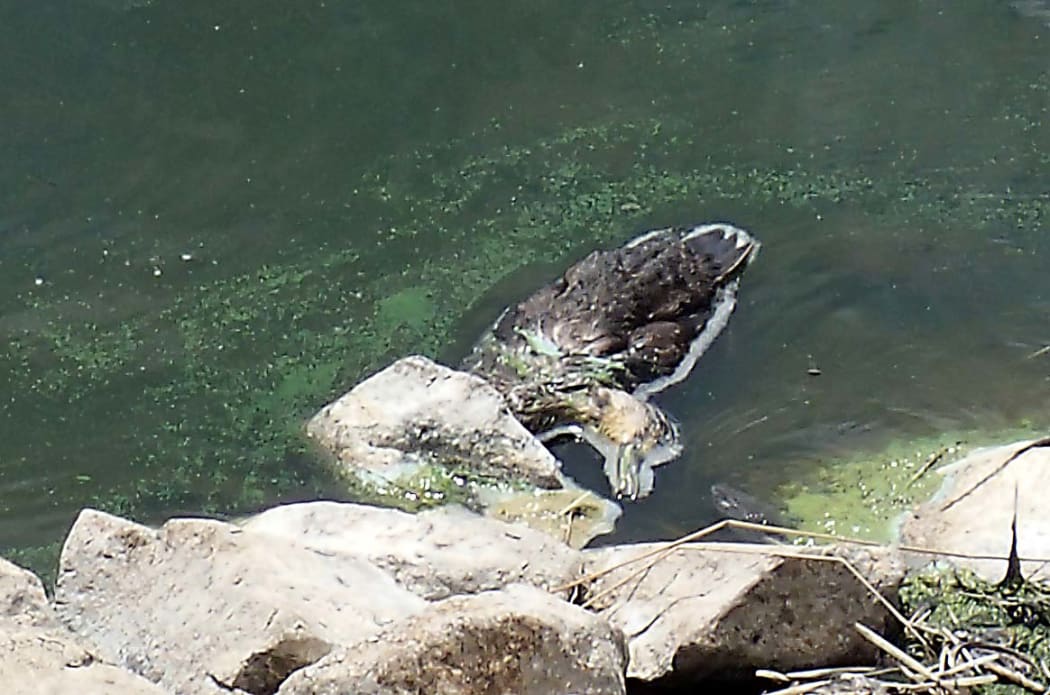Dozens of waterfowl have been killed by a botulism outbreak at a Waikato district wastewater plant, and Fish and Game says the council hasn't done enough to prevent it.

A duck killed by botulism at Te Aroha Waste Water Treatment Plant. Photo: Supplied / David Klee
The group said the problem was discovered at Te Aroha Waste Water Treatment Plant following a tipoff from a member of the public.
Avian botulism can paralyse and kill birds, and Fish and Game's Auckland Waikato Southern Game bird manager David Klee said he was confronted with a grim situation at the treatment plant.
"I counted at least 50 duck carcases in various stages of decomposition. I would guess that some of these birds have been dead for over a month."
Mr Klee said he discovered a number of other birds which were barely alive and exhibiting the later stages of paralysis, "a few could barely keep their heads above the water as the muscles in their necks started to give up."
He said the dead birds included native paradise ducks and he believed the botulism had also spread to the Howarth Memorial Wetland nearby.
The wetland is home to a huge array of water birds, including some threatened species, Mr Klee said.
Fish and Game is accusing the Matamata Piako District Council of not following its own management plans to contain botulism which includes monitoring and scaring off birds using boom guns.
The council confirmed the death of 44 birds, but said they died this week and that the group and the Waikato Regional Council were notified in accordance with its plan.
District council communications officer Eion Scott said it had fulfilled its management plans and botulism was a regular occurrence, happening every two or three years when it was a warm summer.
However, Mr Klee said it was always likely there would be a botulism outbreak and the council should have done a better job.
He said the public should be aware of the problem.

